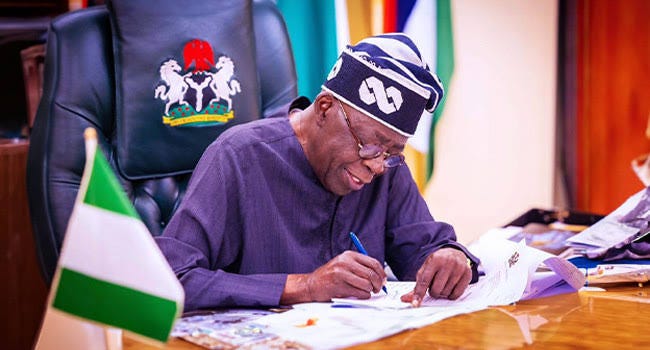CRUDE POLITICS: TINUBU’S OIL REFORM AND THE RECOLONIZATION OF NIGERIA’S ECONOMY
When executive orders replace oversight as tax relief, Nigerians must ask; who stands to profit, and who pays the price?
The oil industry in Nigeria has never truly been about oil. It has always been about influence, control, and who gets to wear the invisible crown. This latest executive order by President Bola Ahmed Tinubu, promising tax incentives to oil companies who can prove cost efficiency is not just a policy, but a deliberate realignment of power in a country where petroleum is the god and the government is the priest. It appears noble on the surface, but it is soaked in political ambition and dressed transactions. We are told it is about cost saving, but every Nigerian with a memory knows that nothing in the oil industry is ever as simple as it is announced.
Before Tinubu’s directive, Nigeria’s upstream petroleum operations were clogged with inefficiency, inflated contracts, and untraceable invoices. Oil companies, both local cartels and foreign multinationals, routinely padded their cost books and wrote their own rules. The system encouraged dishonesty, yet protected those who had friends in power. This new reform claims to offer relief only to those who prove they are cutting operational costs. On paper, that sounds like progress; but the question is… Who verifies the costs? Who authenticates the claims? Which office stands in judgment? It is not the numbers that matter. It is who interprets them, and in Nigeria, interpretation is always coloured by politics.
What Tinubu has done, in essence, is shift the balance of economic loyalty. By creating a reward system tied not to production output but to efficiency certifications, he has constructed a new patronage system in the most lucrative corner of our economy. The oil sector will no longer just answer to the NNPC or the market. It will answer to whoever controls the cost efficiency stamp of approval. That approval can make or break profit margins. It can make or break companies. That is where the real power now sits, and that power, for the moment, sits calmly within the presidency.
This is not economic liberalisation, but political monetisation. If the presidency begins to play the role of validator for oil companies’ tax discounts, then expect a future where political alignment becomes the currency for doing business. Expect a future where oil CEOs must please two masters: one in the boardroom, the other in the corridors of power. This model is not unfamiliar. Nigeria has seen it before; in military rule, in subsidy scams, and in the golden age of oil block auctions to political godfathers. The only thing that has changed is the dressing, but the script remains the same.
The bigger tragedy is that this entire operation is happening in the background of a crumbling economy. The naira is fighting for air, inflation is brutalising the common man, and debt is eating into our future like acid on metal. In such a dire moment, one would expect an oil reform to focus on national ownership, transparency, and energy independence. Instead, we are watching another executive document signed into law without public debate, without civil society input, and without any safeguard against manipulation. It is the same oil story we have lived through for 60 years where only the actors have changed.
Who benefits most from this? Certainly not the Niger Delta communities who still live with oil spills in their drinking water and broken promises from Abuja. It is not the Nigerian youth, whose future is still mortgaged to oil backed debts. It’s not even the average worker, whose purchasing power is withering like yam in harmattan. The winners, as always, will be those who sit close to power and talk the right things at the right time. They will write the efficiency reports, sign the endorsements, and pocket the tax cuts, while the rest of the country will clap in ignorance or cry in frustration.
We must ask: if cost efficiency was the problem all along, why was it only addressed now? Why wait until the presidential seat was secure before introducing a policy that empowers the presidency over the oil sector? Why is this reform not accompanied by legislation, public oversight, or clear punishment for companies who falsify cost reports?
What happens when a company bribes its way into an “efficient” rating? Who pays for that corruption? We know the answer already. Nigeria always pays. Its people always pay.
By: ILUO DePOET
Lawyer | Political Analyst | Writer | Public Speaker | Pan-African


